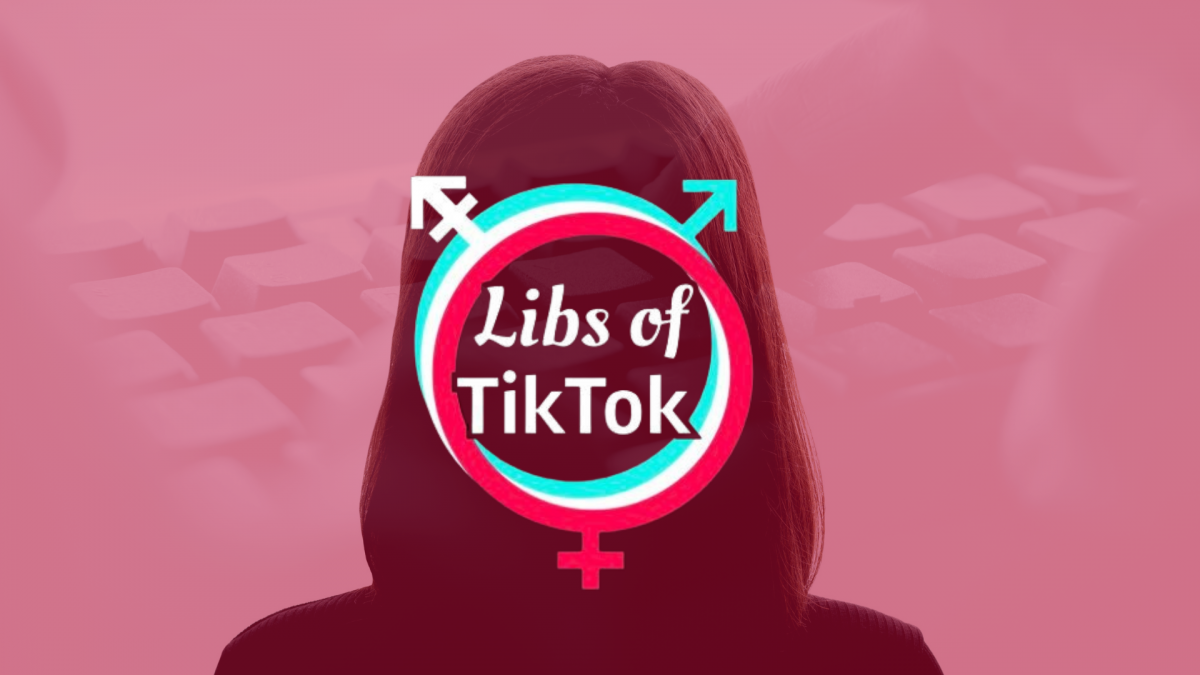A controversial exposé in the Washington Post by journalist Taylor Lorenz revealed the identity of a popular anonymous twitter account, "Libs of Tik Tok." The article included private information about the account holder in a naked attempt to shame her into silence. And as such, it is part of a larger trend in which liberals use legacy and social media to silence dissent.
The "Libs of Tik Tok" account exploded in popularity last year for hosting viral videos of overly-zealous liberals engaging in bizarre behavior and advocacy. As bizarre as doxxing an anonymous account over political differences seems, Lorenz went as far as harassing the family members of the woman behind the account in an attempt to gather information.
.@LibsofTikTok has become a powerful cross-platform social media influencer, spreading anti-LGBTQ+ sentiment and fueling the right wing media's outrage machine.
— Taylor Lorenz (@TaylorLorenz) April 19, 2022
I wrote abt the account, the woman behind it, and why it matters 🧵https://t.co/p5dNT7Li1B
But these kinds of attacks on the privacy and anonymity of private citizens who dissent from the liberal hegemony in ways found to be "problematic" have unfortunately become more commonplace in recent years. And it's not just coming from journalists. After a group of miscreants stormed the Capitol on January 6, Congresswoman Alexandria Ocasio-Cortez suggested keeping a tally of political dissenters. "Is anyone archiving these Trump sycophants for when they try to downplay or deny their complicity in the future? I foresee a decent probability of many deleted Tweets, writings, photos in the future," she tweeted.
Is anyone archiving these Trump sycophants for when they try to downplay or deny their complicity in the future? I foresee decent probability of many deleted Tweets, writings, photos in the future
— Alexandria Ocasio-Cortez (@AOC) November 6, 2020
AOC's call to action seems to have prompted the formation of a group called "The Trump Accountability Project" whose goal was to curate a list of White House staff, Cabinet members and political appointees across the U.S. government whose jobs were linked to the Trump administration, in order to blacklist them from future work.
Despite the clearly alarming trend of creating official lists of enemies for your political opponents and using ethically questionable means to expose private information, these kinds of retribution fantasies are enthusiastically embraced by the Democrats and their media allies.
Taylor Lorenz's doxxing of "Libs of Tik Tok" is just the latest incarnation of this trend. It showcases the absurd lows that corporate media will stoop to in order to silence independent voices that capture inconvenient popular sentiments.
One need not agree with the political stances of Trump supporters or the "Libs of Tik Tok" account to feel apprehensive about these attacks on anonymity and privacy being normalized and celebrated as brave activism.
Hi @TaylorLorenz! Which of my relatives did you enjoy harassing the most at their homes yesterday? pic.twitter.com/QehkBSgcmG
— Libs of Tik Tok (@libsoftiktok) April 19, 2022
The Washington Post exposé not only failed to explore the cultural and political reasons why the "Libs of Tik Tok" Twitter account gained such cultural prominence; it also failed to contextualize why the choice to doxx the anonymous user served any real political or journalistic purpose beyond a show of malice and intimidation. This kind of petty behavior is a common theme among the self appointed digital "authorities" of the corporate media class, who mask their desire to silence independent actors that pose a threat to their discursive dominance beneath a facade of activism and the work of exposing pernicious actors.
And therein lies the true agenda behind the calls for "accountability" that are too often weaponized by media figures who the establishment favors: the desire to control the cultural output of political opponents by employing any means necessary to silence them, including unethical means. This is then justified by portraying private citizens who are simply utilizing their political power and speech as dangerous spreaders of "disinformation" or as "threats to democracy," as in the infamous case of the "Trump Accountability Project" or the podcaster Joe Rogan.

In an increasingly volatile and capricious media realm, anonymity provides much needed protection for those whose commentary cuts against the official narrative, and attacks against this anonymity are almost always designed to intimidate opponents and impact their livelihood or credibility. This is why despite making the "bold move" of doxxing the "Libs of Tik Tok" account holder in her exposé, Lorenz has still not been able to specify exactly why this action was relevant or necessary.
These punitive measures send the worrying message that the only acceptable commentary is the propaganda sanctioned by the Democratic arm of the corporate state machine. If one dares to express or promote sentiments that are a challenge to that hegemony, any consequence is morally justified.
The doxxing of the "Libs of Tik Tok" Twitter user is only the tip of the iceberg. Agreement or disagreement with the sentiments expressed by an account being subjected to silencing shouldn't be the fulcrum upon which to hinge your concern over the precedent their doxxing sets for dissenting voices across the political spectrum. The aggressive and outlandish actions that are being carried out in the name of "content moderation" have the capacity to impact just about anyone who exists outside the credentialed media bubble, including independent commentators and dissenting perspectives on both the left and the right.
Under the current order, the issues of censorship and political intimidation of opponents continues to transcend traditional partisan alliances, and if this issue is not treated with the consideration it warrants by actors on all dissenting sides of the political spectrum, it will result in an even more homogeneous and tightly controlled media sphere, where dissent eventually ceases to exist in spaces that are easily accessible to the mainstream.
Angie Speaks is a cultural commentator and cohost of the Low Society Podcast.
The views in this article are the writer's own.
Uncommon Knowledge
Newsweek is committed to challenging conventional wisdom and finding connections in the search for common ground.
Newsweek is committed to challenging conventional wisdom and finding connections in the search for common ground.
About the writer
To read how Newsweek uses AI as a newsroom tool, Click here.








